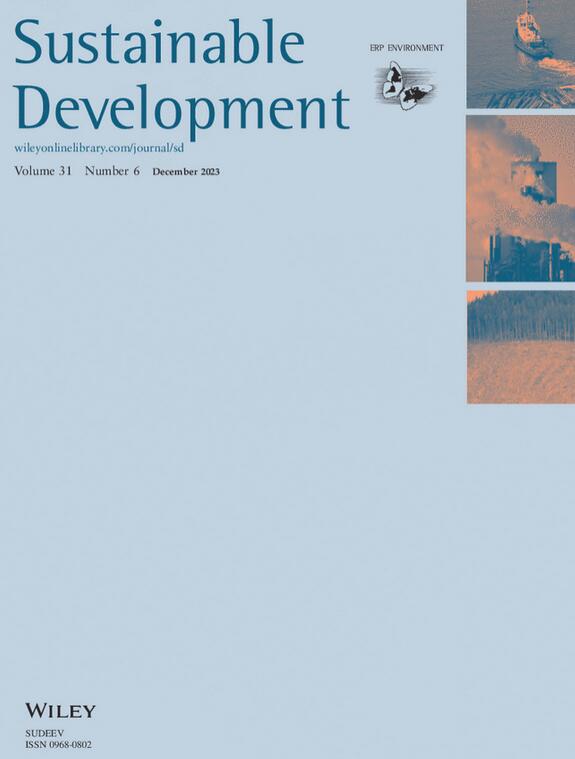迈向碳中和社会:通过区域生态效率分析协调碳峰值战略和火力发电
IF 8.2
1区 环境科学与生态学
Q1 DEVELOPMENT STUDIES
引用次数: 0
摘要
向低碳和碳中和社会转型需要多种技术解决方案。火力发电是中国发电的主要来源,也是碳排放的主要来源。在 "碳峰值 "目标下,火力发电效率将成为影响工业发展的重要因素。基于方向距离函数,本文假定能源使用为输入,发电量为输出。然后,提出了以能源为导向的发电效率分析模型和以发电量为导向的发电效率分析模型。将碳排放作为不良输出,分析有无产业转移的区域发电效率。应用 2013-2017 年中国三个地区的面板数据,考虑了固体、石油和气体燃料三种能源输入。结果表明,在提高发电效率的因素方面,东部和中部地区的纯效率和规模效率变化为正,而西部地区的纯技术效率变化为正。通过进一步分析发电潜力,结果还显示,东部地区在气体燃料方面具有节约潜力,中部地区在三种燃料方面具有潜力,但都不突出,西部地区在固体燃料和石油燃料方面具有潜力。据此,文章从技术创新、差异化发展和合作交流的角度提出了政策建议。本文章由计算机程序翻译,如有差异,请以英文原文为准。
Towards carbon‐neutral society: Reconciling peak carbon strategy and thermal power generation via regional eco‐efficiency analysis
Transition towards low‐carbon and carbon‐neutral society requires multiple technological solutions. Thermal power generation is the main source of power generation in China and contributes to a large portion of carbon emission. Under the goal of “carbon peak”, thermal power generation efficiency will become an important factor affecting industrial development. Based on the directional distance function, this article assumes energy used as inputs and power generation as an output. Then, energy‐oriented and energy‐generation oriented power generation efficiency analysis models are proposed. The carbon emission is treated as an undesirable output to analyze the regional power generation efficiency with and without industrial transfer. The application focuses on panel data of three regions in China over the period 2013–2017, accounting for three energy inputs: solid, oil and gaseous fuel. The results show that in regard to the factors improving power generation efficiency, pure efficiency and scale efficiency change is positive for the eastern and central regions, while pure technical efficiency change is positive for the western region. By further analyzing the power generation potential, the results also show that the eastern region exhibits potential savings in gaseous fuel, the central region has potential in three fuels, but all not prominent, and the western region has potential in solid and oil fuels. Accordingly, the article puts forward policy recommendations from the perspective of technological innovation, differentiated development, and collaborative communication.
求助全文
通过发布文献求助,成功后即可免费获取论文全文。
去求助
来源期刊

Sustainable Development
Multiple-
CiteScore
17.30
自引率
11.20%
发文量
168
期刊介绍:
Sustainable Development is a publication that takes an interdisciplinary approach to explore and propose strategies for achieving sustainable development. Our aim is to discuss and address the challenges associated with sustainable development and the Sustainable Development Goals. All submissions are subjected to a thorough review process to ensure that our readers receive valuable and original content of the highest caliber.
 求助内容:
求助内容: 应助结果提醒方式:
应助结果提醒方式:


